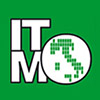Epirubicina, etoposide e cisplatino (FEP) nel trattamento del carcinoma gastrico avanzato
Nel settembre 1993 é stato avviato uno studio sul tumore gastrico avanzato.
Lo studio di confronto (Protocollo 93/3) aveva l’obiettivo di valutare se l’aggiunta o meno di basse dosi del fattore di crescita GM-CSF (granulocyte-macrophage colony-stimulating factor) consentiva l’aumento della dose intensity dell’associazione FEP (epirubicina, etoposide e cisplatino) in pazienti con carcinoma gastrico avanzato.
Sono stati arruolati 62 pazienti.
Lo studio ha dimostrato che i pazienti randomizzati all’associazione FEP + GM-CSF ricevevano una dose intensity significativamente più alta rispetto ai controlli.
Centri partecipanti : Istituto Nazionale Tumori, MILANO
Ospedale di Circolo Varese
Policlinico di PALERMO
Istituto Tumori Fond. Pascale, NAPOLI
P.O.M. G. Rummo, BENEVENTO
Ospedali Riuniti, BERGAMO
Ospedale G. Fortunato, RIONERO IN VULTURE (PZ)
Centro Oncologico G. Porfiri, LATINA
Ospedale Generale Provinciale, SARONNO (VA)
Oncologia Medica – Università di CAGLIARI
Policlinico S. Marco, ZINGONIA (BG)
Policlinico S. Matteo, PAVIA
Ospedale Civile, VIMERCATE (MI)
Ospedale S. Gennaro, NAPOLI
Ospedale Vito Fazzi, LECCE
Ospedale Civile, BIELLA
Riferimento Bibliografico:
- FEP regimen (epidoxorubicin, etoposide and cisplatin) in advanced gastric cancer, with or without low-dose GM-CSF: an Italian Trial in Medical Oncology (ITMO) study.
(Bajetta E, Di Bartolomeo M, Carnaghi C, Buzzoni R, Mariani L, Gebbia V, Comella G, Pinotti G, Ianniello G, Schieppati G, Bochicchio AM, Maiorino L).
Br J Cancer. 1998 Apr;77(7):1149-54.Abstract
The new regimens developed over the last few years have led to an improvement in the treatment of advanced gastric cancer, and our previous experience confirmed the fact that the combination of etoposide, doxorubicin and cisplatin (EAP regimen) is an active treatment that leads to interesting complete remission rates. The primary end point of the present multicentre, randomized, parallel-group phase II study was to determine the activity of the simplified 2-day EAP schedule in patients with locally advanced or metastatic gastric cancer, and to verify whether the addition of low doses of granulocyte-macrophage colony-stimulating factor (GM-CSF) made it possible to increase dose intensity. Of the 62 enrolled patients, 30 were randomized to receive epirubicin 35 mg m(-2), etoposide 120 mg m(-2) and cisplatin 45 mg m(-2) (FEP) on days 1 and 2 every 28 days and 32 to receive the same schedule plus subcutaneous GM-CSF (molgramostin) 150 microg day(-1) on days 5-14 every 21 days. The patients were stratified by age and the number of disease sites. The characteristics of the patients were well balanced between the two groups. The objective response rate of the patients as a whole was 34% (21 out of 62; 95% confidence interval 22-46), with only one complete remission. The median response duration was 4.5 months (range 1-24 months). The median time to treatment failure was 5 months (range 1-14 months), without any difference between the two groups. The median survival of the patients as a whole was 9 months. Full doses were administered in 92% and 94% of the cycles in the control and GM-CSF arms respectively. The average dose intensity calculated for all drugs was 0.96% in the control and 1.27% in the GM-CSF group. CTC-NCI grade 3-4 neutropenia was reported in 39% vs 45% of patients, thrombocytopenia in 11% vs 35% (P = 0.020) and anaemia in 7% vs 35% (P = 0.014). The FEP combination is as active (OR: 34%) in the treatment of patients with advanced gastric cancer as the EAP regimen, although it leads to fewer complete remissions. The patients randomized to receive low-dose GM-CSF achieved a significantly higher dose intensity than controls (P = 0.0001).PMID: 9569054 [PubMed – indexed for MEDLINE] PMCID: PMC2150127
Download articolo: Br. J. Cancer. 1998
